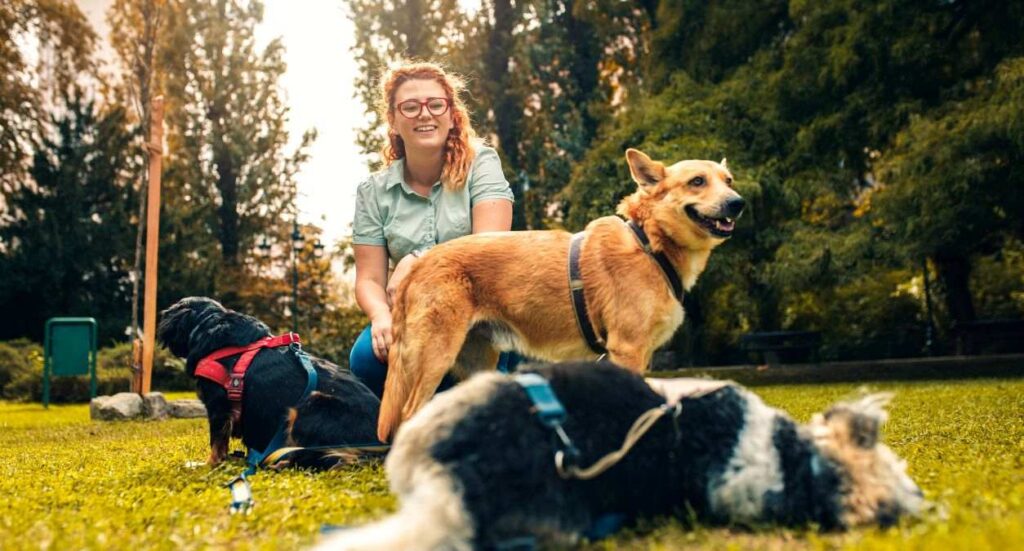Contributors
Steffi joined the business in July 2017 as Business Support Executive. Steffi completed her degree in Sports and ...
As a pet business insurance provider, Protectivity receive a large number of queries about the rules surrounding the need for a dog boarding licence.
The rules about what licence you require and how you operate can vary slightly between different local authorities. However, the overriding statements regarding licensing of this type of business are covered in the Animal Boarding Establishments Act 1963 and Animal Activity Licensing Regulations 2018.
Who needs a dog boarding licence?
According to the act, anyone running “an establishment, whether a private dwelling or not, where a business is conducted for the provision of accommodation for other people’s cats and dogs” needs a licence.
Therefore, anyone running a commercial enterprise whereby they are looking after a third-party’s animal needs to closely pay attention to the licensing regulations.
How do you apply for a licence?
Licenses are handled by local councils, as opposed to being managed by centralised government. Depending on your location, it may be possible to apply online, while other councils will require you to post your application form.
Another varying aspect of the process is the cost. The price of an application is set by the authority and can start from as little as £70 a year for a dog only licence, to over £300 for a joint cat and dog licence with some councils.
The whole application process, on average, takes three to four weeks to complete before you will receive your licence. Some authorities apply ‘tacit consent’ to applications. This means that if you haven’t had your application explicitly rejected within a set time-frame of applying, you are able to start boarding. This is something to check with your local authority when applying for your licence.
What will you need to prove?
The requirements that councils will have before approving a licence are fairly self explanatory.
You will likely be subject to an inspection of your premises by a council official. During this visit your suitability to accommodate animals, through your provisions to provide clean and safe boarding, your skills and knowledge of what is required of boarders.
The health of the animals that you will be looking after is likely to be seen as paramount. Therefore, it will be a requirement under your licence that you keep a record of every animal that you take in, as well as any specific needs or health issues that they may have. You may need to provide a copy of this documentation if a council official or vet were to visit your premises while you are in operation.
Another prerequisite of obtaining a licence is insurance. Local councils will request that they see a copy of an insurance certificate that covers you for Public Liability (as a minimum) before granting you a licence. Having this cover in place gives you protection against legal costs that might ensue if a dog in your care was to injure a third-party or cause damage to their property.
Things to remember if home-boarding
As well as speaking to your local council, reading the full the specific section of the Animal Welfare England Regulations 2018 on home boarding will give you an in-depth understanding of animal boarding licences.
Much in the act may not be relevant to you, but here are five other key things you need to remember when running a boarding business from your own home:
- If you have your own dog, or will be boarding dogs from multiple households, written consent must be gained from your clients stating they agree to their dog being kept on the same premises
- Dogs must be accommodated within the home and have direct access to a private, non-communal, secure and hazard-free external area
- Each dog must have it’s own safe, clean and warm designated room where it can be kept separate from other dogs if necessary
- No dog registered under the Dangerous Dogs Act 1991 can be accepted
- Puppies that have not completed their inoculations must not be boarded
If you are operating without a licence, the punishments are clearly set out. You can be prosecuted and sentenced to up to three months in prison and fined up to £500.
For anyone already operating, that does not hold a licence, it is advised that you contact your local authority immediately. Doing so doesn’t instantly mean you will be prosecuted. It is possible that the council will require you to stop boarding animals while they process any application from you for a licence. However frustrating it may be to curtail income from boarding clients may be, it is important to ensure you are fully licensed to avoid further punishment.
About Us
We’re one of the leading providers of insurance for pet businesses, and we offer a variety of tailored products such as Dog Walking, Pet Sitting business insurance and Dog Grooming Insurance policies.
*Disclaimer – This blog has been created as general information and should not be taken as advice. Make sure you have the correct level of insurance for your requirements and always review policy documentation. Information is factually accurate at the time of publishing but may have become out of date.
Last updated by


















